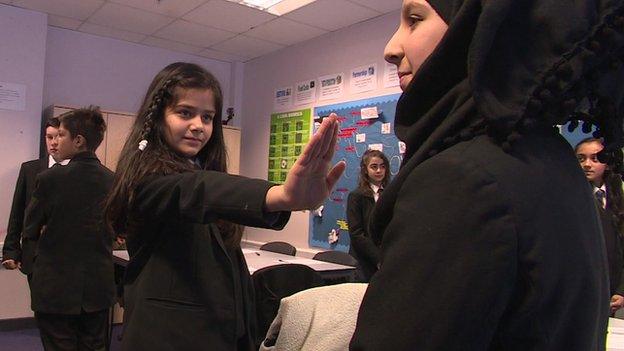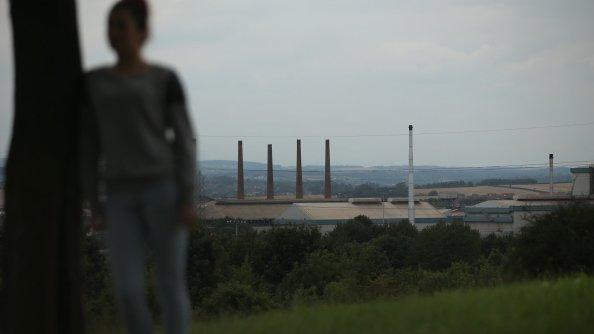Sex abuse: Labour promises power for victims to challenge police
- Published

Labour said the proposals would first apply to rape and child sexual exploitation cases
Labour has said it would give victims of sexual offences the right to challenge decisions by police not to prosecute suspects.
The plans would allow victims to ask for a case to be reviewed when police identified a suspect but did not pass a file to the Crown Prosecution Service.
The policy would begin with rape and child sexual exploitation cases.
Labour's shadow home secretary Yvette Cooper said it was time to "put victims in the driving seat".
'Not good enough'
The CPS already has a right to review scheme in place, where victims can request a review of their case if it is dropped by prosecutors before reaching the courtroom.
Labour said it intended to extend this to decisions by the police.
Ms Cooper said: "Rape and child sexual exploitation are vile crimes that ruin lives and destroy families.
"Too often victims and survivors aren't listened to and aren't heard, especially children.
"And although reports to the police have gone up, arrests and prosecutions have gone down.
"But right now if the police decide not to pursue a crime, there is little more victims or their families can do. That's not good enough.
"We'll change the law so that if the police decide to drop a case after a suspect has been identified, victims will have a new right to challenge their decision.
"It's time to change the culture, stop these awful crimes being hidden away and put victims in the driving seat."
Law and order
Labour
Main pledges
- Scrap police and crime commissioners and protect neighbourhood policing
- New commissioner on domestic and sexual abuse
- Establish a victims' law
- Overhaul the Prevent programme aimed at stopping more people getting drawn towards violent extremism
Labour said that of 16,300 complaints of rape made to the police in England and Wales in 2012-13, 5,400 were passed to the CPS.
The party said a decision to drop a case when a suspect had been identified would follow the process used by the CPS, of local resolution followed by independent review.
Under the plans, the decision to drop the case would be first be checked by a prosecutor who has not been involved with the case previously.
Labour said it would ensure victims were provided with a clear and detailed explanation of the decision and the local resolution would normally be completed within 10 days of the receipt of a request for review.
If the victim were not satisfied with the local resolution, the decision would be independently reviewed by another prosecutor.
Former Thames Valley Chief Constable and head of the National Policing Improvement Agency, Peter Neyroud, said: "It is critical that victims have a right to review decisions all the way from the duty to record and allegation, through to decisions on whether to pursue a prosecution.
"Not only does this put the spotlight of accountability on the police, but it also gives the victim an important additional opportunity to influence their case and understand the decisions.
"Sometimes this will encourage a fresh angle to the case; sometimes there will be no new avenues. But there should always be a full and frank explanation of the steps taken to bring an offender to justice and the rationale for police decision."
- Published9 April 2015

- Published26 March 2015

- Published3 March 2015
